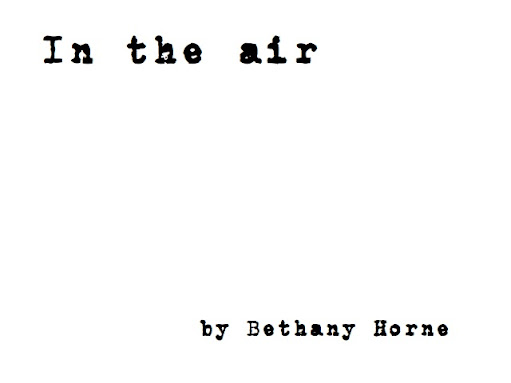What can I really say to distinguish week three from week two? Drama and conflict perhaps. That usually works as a lead.
There was a virtual fist-fight over OpenFile this week. Actually, the fight wasn't really about OpenFile, OpenFile was more of a MacGuffin in the narrative of the fight, but as a group consisting of living humans with real emotions, playing the MacGuffin for a while was drama enough.
In my Week One round-up of press coverage of OpenFile's beta launch, I neglected to include an article that appeared in the NOW newspaper (or maybe just on NOW's website). The article was opinion, and it argued that OpenFile is going to face the challenges that citizen journalism sites like NowPublic regularly face, and will struggle as a result. Except, the author didn't interview anybody from OpenFile, and apparently didn't read any of of the other coverage that did contain interviews very carefully, because he got a lot wrong about how OpenFile proposes journalism with public participation could be done. Craig Silverman pointed out the errors in a comment. Jay Rosen, a guru of online journalism who teaches at NYU, casually tweeted a reference to the fact that the NOW piece committed errors, and thus the virtual fist-fight began.
 This person presents the first of the crazy tweet punches fairly clearly.
This person presents the first of the crazy tweet punches fairly clearly. Even as Rosen's followers weighed in on the issue in this way, the NOW guy refused to give up! He went from error to slander when he accused Rosen of having a direct economic interest in the OpenFile company. Madness.
Then, some guy in Atlanta picked up on the tweetfight and analyzed it logically. I thought the coolness of the piece would put the matter to rest, but if you read down to the comments, the NOW author chose to continue his feckless campaign to clear his name. By this point, the whole thing made me laugh.
I definitely know how this Joshua Errett guy feels. Which is why I'm trying to not be too hard on him. The Internet is a hard, hard place to project part of your life into. There is no mercy for those who make mistakes. There is no way to control what you broadcast. Everyone is expected either to self-moderate to the point of perfection, or to take refuge in anonymity. I admire those who put their real selves out there into the unforgiving environment, and I feel bad when they are punished as a result.
But back to the office. I'm amazed anybody got any work done as this drama unfolded. My productivity would appear to have dropped, judging by the number of stories I filed this week (only one) but I actually have three stories I'm working on for next week. Hopefully, they will be somewhat ready by Monday or Tuesday.
Different things made writing difficult this week. A lot of people took their sweet time getting back to my phone calls, or they never got back at all. I went to a city council committee meeting, which was so much more stupefying to my neurons than any Dalhousie Student Union meeting I've ever been to. The main reason I got less done: the TTC and the incredible long time it takes to get me anywhere when I need to be there. Also, Thursday morning was spent wandering around downtown, looking for a street person to talk to. Friday afternoon was shortened because I agreed to give an interview to a Ryerson Review of Journalism writer who is covering OpenFile and the future OpenFile heralds.
In true RRJ style, she has pretty much interviewed every single person remotely related to her topic of study. She wanted to talk to me because I am a freelancer who has five stories up on the site, which is more than most people. She didn't know, when she requested an interview, that my output of stories is due to me being an intern. She must've thought I was just an OpenFile nut -- which, I'm on my way to becoming.
P.S. Two stories interested me from a philosophical perspective this week. One journalist took on the research of a rumour about immigration raids which no one could confirm or deny. On OpenFile, that's still a worthy story, because the rumour has had wide diffusion among hispanic residents of Toronto's West End. This story was a good proposal for how coverage could evolve and keep filling the file with new information. Nothing has really come out, yet, to confirm or deny the rumour (perhaps because OpenFile doesn't have wide diffusion in the immigrant community) but I have my fingers crossed. In the future, the site's audience will be bigger, and also bigger then the likelihood that lures like this will attract actual fish.
Secondly, this story about a house captured a quick audience. It's almost a perfect example of what my fiction instructor would call "the human heart in conflict with itself" -- but the human heart I'm talking about belongs to the reader; it's the human heart of the contemporary Torontonian. Because, what should happen when a quadriplegic wants to raze a heritage house in order to build an accessible one she can move around in? It's a competition between two strong but conflicting desires: to preserve something that may have historical value, or to build something that has value for a family with specific and tragic needs. To make the story more interesting, the city councillor has picked a side, and underhandedly commissioned a third-party report that pulls the rug out from under the feet of the family, who are anxious to build their home. The way this story evolved on OpenFile was classic, and one Twitter user agrees: this is how the new journalism could be done!
And it's not citizen journalism, Errett. It's more.








No comments:
Post a Comment